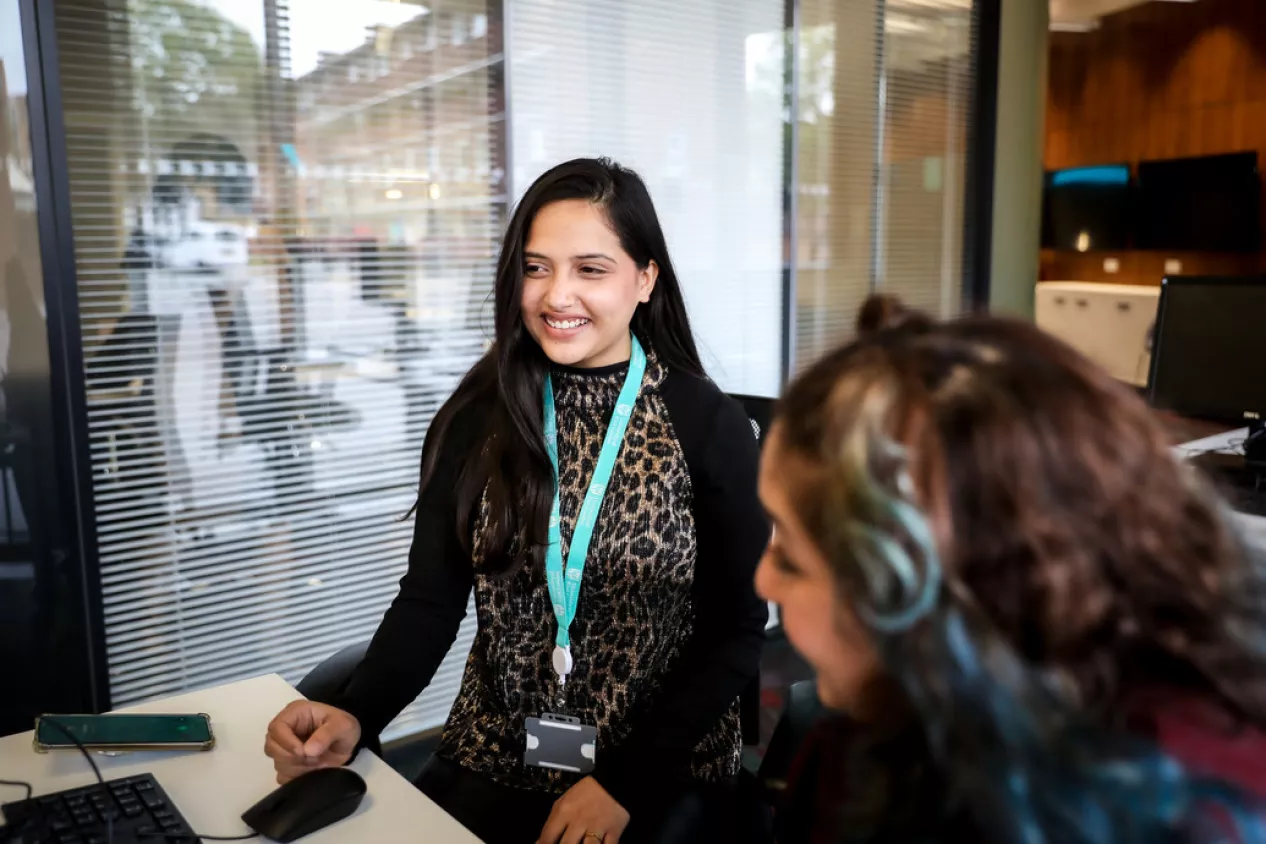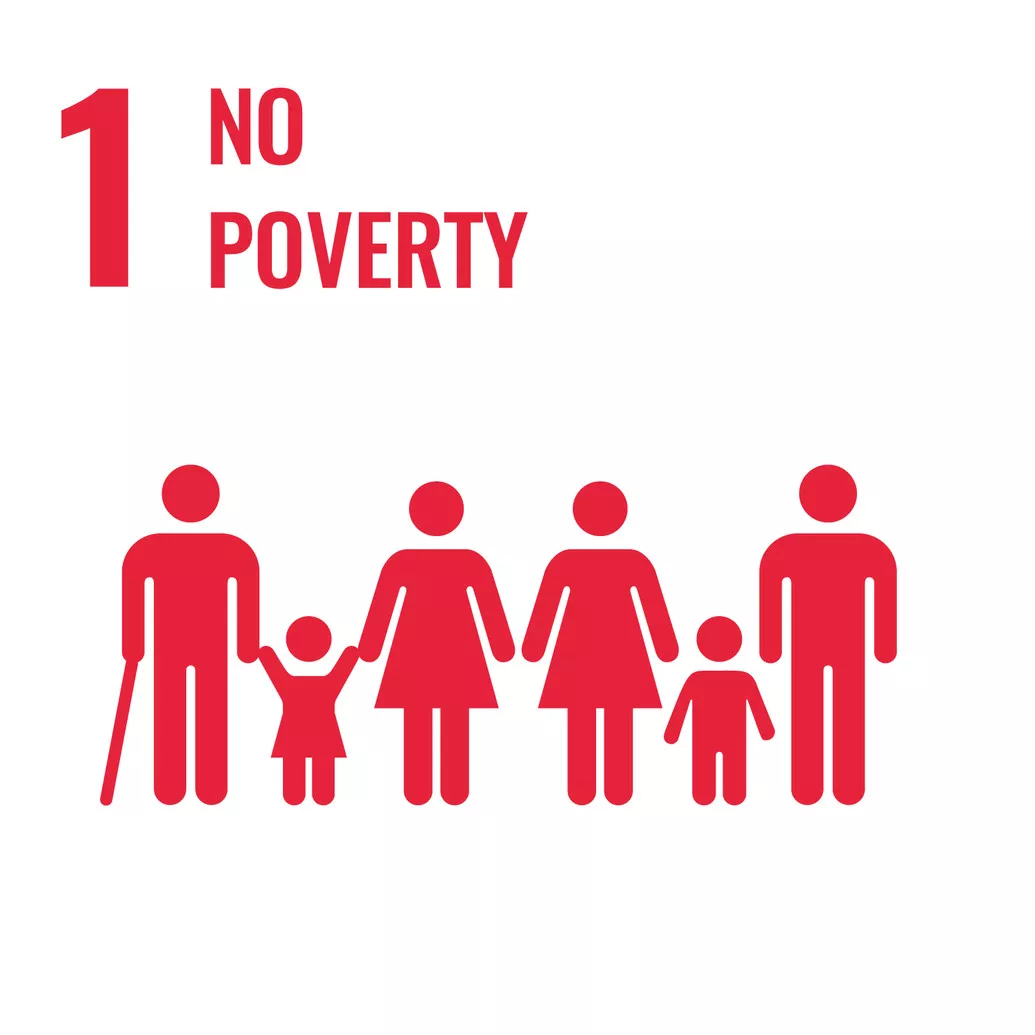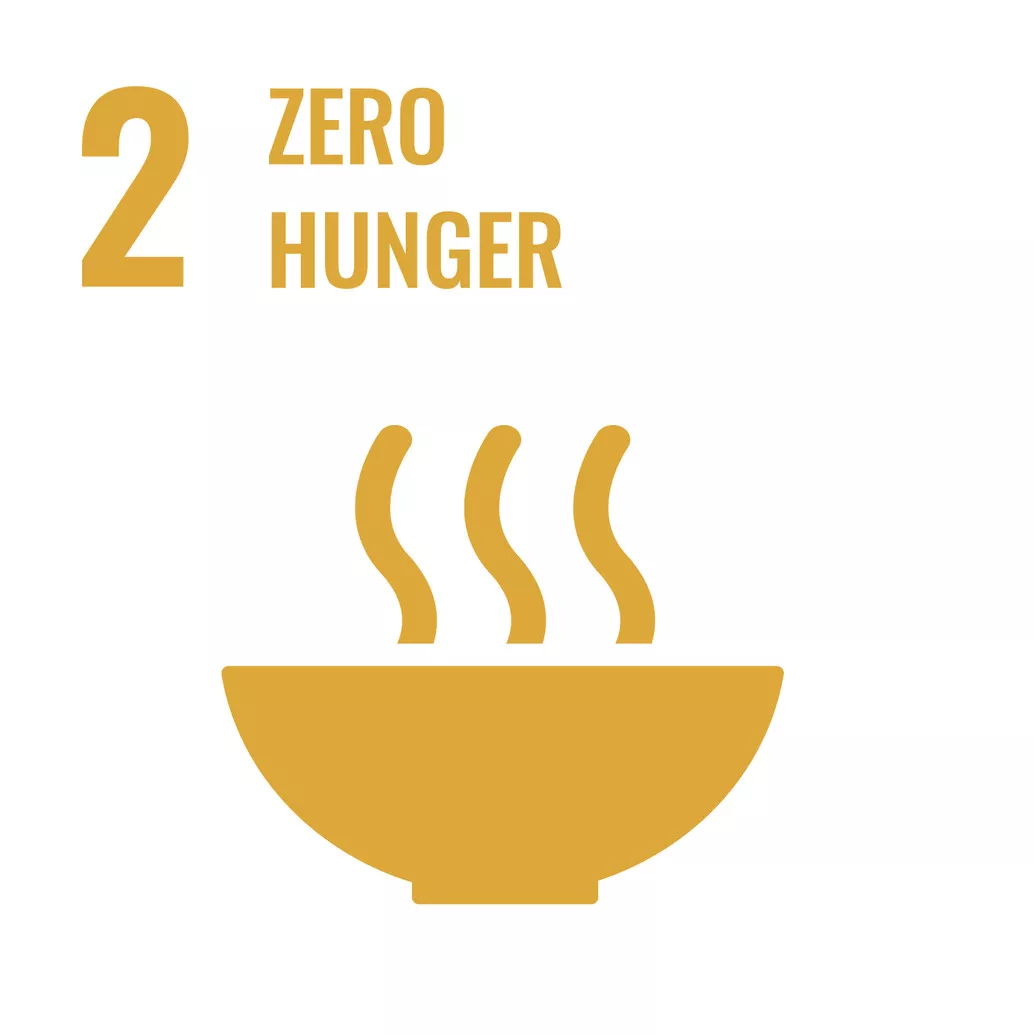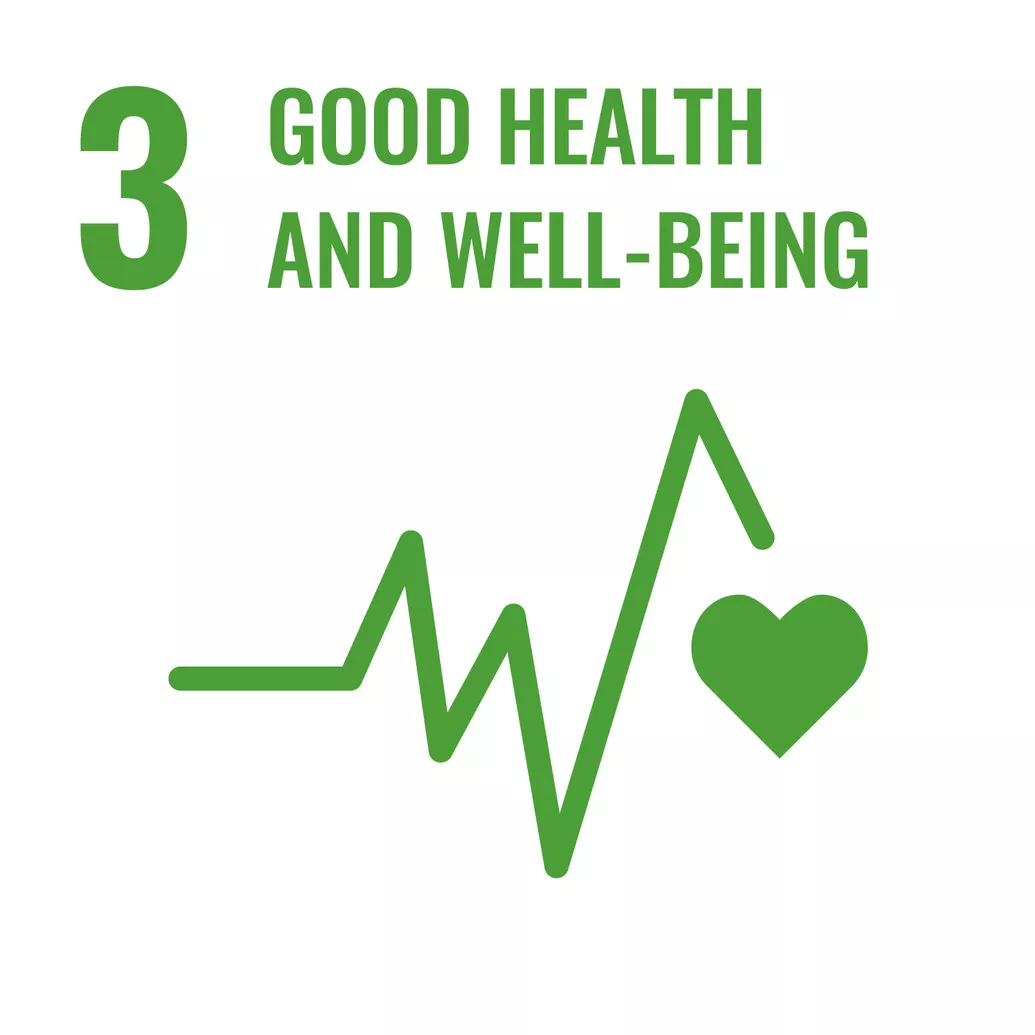Sustainability
Sustainability
The University of East London is committed to addressing the global climate crisis and championing sustainability across our core activities, including through our estate planning, campus operations, teaching, research, and collaborations with our partners.
As a globally recognised university based in the ever-evolving east London region, we acknowledge the value of our community including staff, students, and partners. We aim to engage the UEL community in the planning and delivery of sustainability initiatives and events and provide opportunities for them to contribute towards improving our environmental and social impact.
The University of East London has set a target to become a net-zero carbon institution by 2030. To achieve this target, we have developed a framework for sustainability based on four foundational pillars: Sustainable Place, Sustainable People, Sustainable Policy, and Sustainable Practice.
Vision 2028
Sustainability is one of the four strategic objectives of Vision 2028. As part of this, we have set ourselves the ambitious goal of becoming a net-zero carbon institution by 2030.
Our vision is inspired by:

Sustainable Development Goals (SDGs)
The four pillars of sustainability
Our core work comprises four key focus areas, called the Four Pillars of Sustainability, covering all relevant university activities as highlighted below. All these programmes are running or included in the sustainability plans for coming years.
Place
- Estate decarbonisation
- Connected Campus
- Siemens partnership
- Carbon, Energy & Water Management
- Scope 3 emissions
- Waste reduction
- Sustainable travel
- Biodiversity
- Construction and refurbishment
People
- Staff Training in Sustainability and Carbon Reduction
- Student-Focused Green Events
- Student Sustainability Ambassadors
- Staff Sustainability Network
- Communications & social media
- Community Engagement.
- UEL Living Lab
Policy
- Procurement and resource management
- Climate change adaptation and resilience
- Ethical affairs
- Policy refresh
Practice
- Sustainability in teaching and research
- Sustainability Research Institute
- Royal Docks Centre for Sustainability
- Accreditation and metrics
- League table rankings
- Sustainability impact assessments
- Annual sustainability report
Our carbon footprint and path to net-zero
UEL measures its carbon footprint following the Greenhouse Gas Protocol framework, which is the most widely used international carbon accounting tool. The GHG Protocol framework categorises emissions into three key scopes: Scope 1, Scope 2, and Scope 3.
To reach net zero, we need to first reduce each of these scopes by as much as possible, and then use carbon sequestration methods to eliminate our residual footprint, which is the emissions which remain after all efforts to eliminate emissions have been implemented.
- Scope 1 refers to the direct emissions we produce ourselves, including from our gas and vehicle fleet.
- Scope 2 refers to the electricity that we purchase.
- To reduce our scope 1 and 2 emissions, we need to decarbonise our energy usage, which will include building fabric improvements, increasing energy efficiency, generating renewable energy, phasing out gas and transitioning to electric vehicles.
- We have partnered with Siemens to help us reduce our scope 1 and 2 emissions - read more about our Siemens Partnership.
Our combined Scope 1 and 2 carbon footprint
| Year | Total Scope 1 & 2 emissions (market-based for Scope 2) | Total Scope 1 & 2 emissions (location-based for Scope 2) |
|---|---|---|
| 2018-19 | 1553 | 4493 |
| 2019-20 | 1545 | 3891 |
| 2020-21 | 2719 | 5047 |
| 2021-22 | 2384 | 4585 |
| 2022-23 | 2151 | 4504 |
Scope 3 refers to all the emissions relating to our operations - everything we buy, everything we build, all our travel, our waste and water, and much more. Since everything we do or buy or use has an associated footprint, thus, decarbonising our scope 3 emissions requires a radical shift in the way we operate as a university and a community of 20k+ students and 1k+ staff. Currently, we are working to develop a detailed plan on how to rapidly quantify and reduce our Scope 3 emissions.
Even after we reduce our emissions as much as possible, there will still be a small leftover carbon footprint from unavoidable activities. These leftover emissions can be squared in two ways – offsetting or sequestering. While some organisations eliminate residual emissions by ‘offsetting', i.e., paying someone else to reduce their emissions too. Others eliminate this by 'sequestering', i.e., investing in certified carbon removal projects. A detailed plan for eliminating residual emissions will come up in the coming years.
Environmental Management System- ISO 14001 Certification
Pursuing ISO 14001 certification with the assistance of EcoCampus, the Sustainability team has been working across departments to apply and embed the framework at the core of university activities. The ISO14001 system requires us to demonstrate strong leadership and commitment to reducing our environmental footprint, placing this within our wider business context and institutional strategy.
An Environmental Management System (EMS) is a tool for managing the impacts of an organisation's activities on the environment. It provides a structured approach to planning and implementing environmental improvement and protection measures. It considers the things that an organisation is required to do because of legislation or other regulations. We are currently in the EcoCampus Bronze Phase which will be followed by Silver, Gold and Platinum Certifications.
The world's challenge; UEL's opportunity.
All our staff will understand the commitments we are making to sustainability and their role in driving positive change for our university community and our environment. All our students will leave as responsible graduates and global citizens with the knowledge and skills to live sustainable lives after their time at university. Click on the four strategic priority areas below to find out how we are transforming our vision into reality.
Our projects
Our quest to achieve net zero has already begun, with lots of exciting work, research and projects taking place within the UEL community. One of the goals of the Net Zero Strategy is to pull all these ongoing projects together, along with any future initiatives, to ensure everyone is on the same page and working towards common goals.

Royal Docks Centre for Sustainability
The Royal Docks Centre for Sustainability (RDCS) opened on our Docklands campus in December 2023. It is UEL's flagship building of sustainability. The RDCS has spaces dedicated to sustainability research and uses the University as a Living Laboratory, allowing students to gain industry experience of using real building and energy data.
Siemens carbon innovation partnership
UEL has entered into a partnership with global technology company Siemens in order to help us achieve our net zero goals. Working with Siemens, the University has developed a plan to tackle energy-related carbon emissions through a lighting replacement programme, as well as enhancements to our building management system. There are also plans to install more renewable energy on campus such as solar panels and heat pump technology.
Stratford campus redevelopment
UEL's Stratford campus is about to undergo a major transformation, with the construction of brand-new facilities that will be used for academics, student housing and sport. This will be the first time student accommodation will exist at Stratford, and work has already begun to ensure construction and operation of these new spaces will be as sustainable as possible. The buildings will be constructed to WELL Building Standards, which places people's health and well-being at the centre of the design.
Get involved
Events
Our fun events are an opportunity for everyone to learn, share and participate in sustainability activities on campus and beyond.
From one-off events like litter picks to playing our award-winning recycling game, we aim to educate and inspire a sustainable mindset in our staff, students and the wider community.
We're open to collaboration with local councils and institutions, like food banks, charities, schools, and libraries, to galvanise our community around a common purpose.
Do you have an idea for an event, collaboration or other sustainability-related initiative around the campus? Get in touch with us at sustainability@uel.ac.uk.
Community garden

We have a small Community Garden at our Docklands Campus which is open to UEL Staff, students and the local community. We keep looking for volunteers to join us for regular maintenance, seasonal planting, and upkeep of the garden.
If you would like to organise group sessions and community activities within the Community Garden, please reach out to us at – sustainability@uel.ac.uk
There are no charges or fees, we will lend out all help and support possible. All tools and equipment for gardening are available in our Polytunnel.
Our own gardening sessions run through Spring and Summer every Tuesday – 12-1 pm, for anyone who is interested in joining. Sometimes the sessions get cancelled owing to bad weather or other reasons, keep an eye on our Instagram User ID- uelcommunitygarden, for regular updates.
Earth Week
22 April is Earth Day! Celebrated annually, this day reminds us of the importance of helping our environment and acting on climate change. Each year there’s a new theme for Earth Day that focuses our attention on a specific environmental issue. To celebrate, the Sustainability team put on a series of events spanning the preceding week.
Earth Week is a chance for you to throw yourself into the eco vibe and explore your green side - planting sessions, movie night, tote bag decoration, paint and plant, sustainability seminars and more!
Litter pick
We participated in the Great British Spring Clean with Newham Council this year. UEL staff and students went around the local area around the Docklands campus for a Litter Pick to show our support in keeping neighbourhoods tidy while educating people about waste management.
Rubbish Game
UEL was awarded a bronze-level Green Apple Environment Award in 2022 in the 'Education and Training: Waste Management' category for engaging students and the local community in waste disposal and recycling using our fun and engaging Rubbish Game.
Players physically pick fake/make-believe items provided and put them in the bins they think they should go in. The Rubbish Game tackles this issue and the phenomenon known as 'wish-cycling', which sees people put things in the recycling bin, trusting they will get recycled, sometimes correct but mostly riddled with assumptions. This is a fun way to make people aware and break common myths that people have regarding waste disposal.
Students' sustainability club
Join UEL’s Students' Union Sustainability Club.
Visit East London Students' UnionWaste
We aim to reduce the amount of waste disposed to landfill by decreasing unnecessary consumption and increasing recycling and reusing.
You can recycle a range of items on our campuses, and we are trying harder to do more! As well as household waste (cans, plastic bottles, paper, cardboard, food packaging) you can also recycle glass, batteries, electrical goods, and ink and toner cartridges.

Transport and Travel

With a massive community of staff and students who travel to and from our campuses, we are committed to improving the travel behaviours of the UEL community by:
- reducing the need for travel,
- investing in sustainable means of transport,
- encouraging active travel (walking and cycling); and
- assisting the surrounding local communities by reducing traffic congestion and associated harmful impacts of pollutants
Meet the team

Lee Taylor
Sustainability Manager - Maternity Cover
l.taylor3@uel.ac.uk
Lee is responsible for:
- Strategy and governance
- Programme management
- Anchor institution development

Jade Carney
Sustainability Officer – Resource Management and Net Zero Delivery
j.carney2@uel.ac.uk
Jade is responsible for:
- Energy and carbon management
- Recording, monitoring, and reporting on energy, water, and carbon emissions
- Working on a range of projects as part of our net zero strategy

Varsha Srivastava
Sustainability Officer - Engagement and Net Zero Delivery
v.srivastava@uel.ac.uk
Varsha is responsible for
- Staff and student engagements in sustainability
- Behavioural change
- Working on a range of projects as part of our net-zero strategy

Mimi Cedrone
Sustainability Manager
m.cedrone@uel.ac.uk (Currently on maternity leave until May 2024)
Mimi is responsible for:
- Championing sustainability in all aspects of the University
- Leading on the development and implementation of UEL’s Net Zero & Sustainability Strategy
Contact us
- For any queries or suggestions, contact us at sustainability@uel.ac.uk
- For waste-related queries or suggestions, contact us at waste@uel.ac.uk
- You can also contact us on our individual emails, which are displayed above
- Follow us on Instagram to stay up-to-date with the latest sustainability news and events: @uelsustainability
- Office location: NB 2.10, Docklands campus




